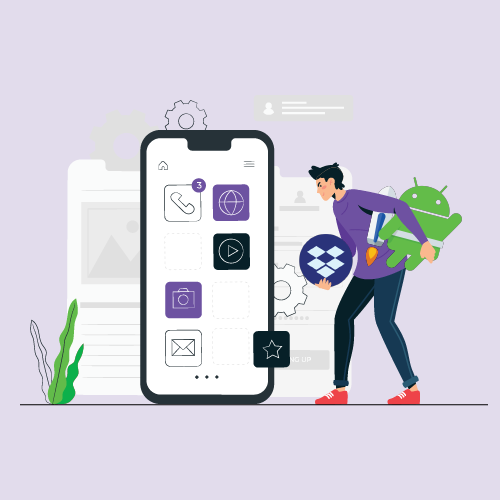When we buy any product online or offline, one question that strikes our mind is, “Is it pure and healthy?” Though there are plenty of strict regulations on the goods sold locally, the supply of counterfeit food products is increasing. As a consequence, it is quite difficult to even trust the retail’s biggest brands.
According to the Organization for Economic Cooperation and Development, the supply of fake products was worth almost half a trillion dollars in 2013 globally, with China at the top of the list. In 2008, China saw one of the most distressing food tragedies where six kids died and about 300,000 fell ill after drinking melamine-tainted milk. While in September month of the same year, local authorities seized 2,000 bottles of fake Maotai liquor. This has affected the trust of the consumers over the product; compelling the retailers to make the whole process transparent and traceable.

This whole has prompted a startup in China to build its own distinct radio-frequency identification (RFID) anti-counterfeiting label. Based on Blockchain technology, the label will ensure the consumers about the product authenticity and trustworthy.
Walimai Mobile Application for Handling Counterfeit Products
The Brainchild of the top famous consultants in China (Alexandar Busarov and Yaroslav Belinskiy), Walimai employs the combination of Blockchain technology and fully-secure RFID anti-counterfeiting label to empower the customers to authenticate milk products with simple scanning via a mobile application, Walimai.
“We are striving to utilize the trending technology for offering a tool to the customers via which they could differentiate the fake from original products at every step of the supply chain”, Mr. Busarov, CEO of Walimai.
Working of Walimai Mobile Application
Various means like unique QR codes and encrypted RFIDs that are currently used can be easily cloned. Due to this, the authenticity of the products gets compromised. The Walimai mobile application, unlike other existing methods, will employ dynamic codes which can update data on both the chip and backend system in real-time.

Whenever there will be a change of custody, the anti-counterfeiting label of the product will be scanned. The scan will update the secret codes on RFID chips as well as at the backend system. Along with, it will capture and update the geographical information in the system. When the end user will receive the product and scan the label using this blockchain-based mobile application, the whole history of scanning will be displayed in front of them. On the top of it, the label will automatically get destroyed once removed from the product or the milk product used by the customer, lessening the chances of refilling. This, as a whole, will boost the user’s trust and thus, reduce the fraud cases.
What’s Next?
To deliver an exceptional customer experience and incentivize the scanning of labels, Walimai mobile application will be linked to a remotely hosted, crypto-token loyalty program under WaBi Project. In addition to this, an initial coin offering (ICO) will be launched for its WaBi crypto-token, blockchain technology-based program soon.
Walimai is not the first company to adopt Cryptocurrency and Blockchain technology in its application. There are a number of other brands from different business verticals that have been using the technology. This is the doing of the growing popularity of Blockchain in the global space. We have covered Blockchain and Cryptocurrency in detail in one of our blogs, titled – How to build a P2P Payment App.



Modern Android App Architecture with Dropbox Store and JetPack
A few days ago, Dropbox acquired an open-source Store library. The aim behind taking the ownership was to modify it to make it more suitable to the prevailing Android developer ecosystem. Now, Store also includes Google JetPack collection of libraries which poses as a solution for creating current-day Android apps. Google JetPack makes it possible…

Google Acquires Appsheet, a No-code Mobile App Development Platform
Google recently announced that they have acquired AppSheet, a Seattle based no-code mobile app development platform. The terms of the acquisition have not been disclosed yet, but it has been revealed that AppSheet will continue to serve its existing customers. AppSheet was founded back in 2014 by Praveen Seshadri and Brian Sabino to help businesspeople…

How Can Blockchain Help in Combating Deepfake Issues?
Remember the video posted by Belgium’s Socialstiche Partij Anders back in May 2018? The one where Donald Trump was blaming Belgium for presenting in the Paris Climate Agreement. Or the one where Trump was a part of the popular Breaking Bad series? Such videos are hitting the Internet every now and then. They are entertaining…















